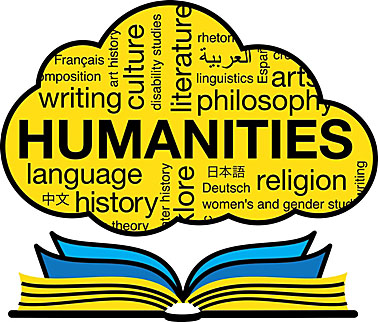The first Humanities Happy Hour of the spring semester is set to have a flair for international film.
Dr. Ruth Hottell, professor of French, and Dr. Friederike Emonds, associate professor of German, will speak Friday, Jan. 30, from 6 to 7 p.m. in the Libbey Hall dining room. The free, public event will begin at 5 p.m. with a cash bar and free refreshments that will continue through the talks and end at 8 p.m.
 Hottell’s talk, “Francophone Women Filmmakers,” will explore images of women in French films. Throughout French literature, there are very few uplifting depictions of women; they are usually only there to assist the male characters, Hottell said.
Hottell’s talk, “Francophone Women Filmmakers,” will explore images of women in French films. Throughout French literature, there are very few uplifting depictions of women; they are usually only there to assist the male characters, Hottell said.
“At one point in time, you say, that’s enough, I’ve seen it,” she said. “Let’s see if there are positive images; particularly how women would represent themselves. That’s what I’ve been focusing on for most of my career.”
According to Hottell, women have directed 23 percent of the films in France, which is the second highest ratio worldwide. Two of these francophone women, who will be the focus of Hottell’s talk, are directors Agnès Varda and Marjane Satrapi.
Varda was involved in the French new wave, a movement that began in France where the directors also became the authors of their films. This movement became a mainstream influence in the 1960s and continues to be prevalent in modern film. Satrapi began her career more recently, beginning with the filmed version of her graphic novel, “Persepolis” in 2007.
Hottell co-authored several books, including Noteworthy Francophone Women Directors and Francophone Women Film Directors: A Guide with Dr. Janis Pallister, a former professor of romance languages at Bowling Green State University, who passed away in 2008. In these books, the pair included research and their own interpretation on films directed by francophone women.
“Can we say women look at things differently?” Hottell said. “Can we say women film things differently? Women filmmakers treat their subjects differently.”
Film is a topic that also will be covered in Emonds’s talk, “The Future of Memory: 70 Years After Auschwitz.” Memory studies is a class of research that focuses on how long a person remembers something and the significance it holds in their mind by comparison with how long since the event has happened.
“It has immediate need and urgency when we look at the Holocaust,” Emonds said. “We have to look at how people are going to remember this.”
Tuesday, Jan. 27, was the 70th anniversary of the liberation of the Auschwitz concentration camp. Emonds said that thousands of survivors used to gather at the camps to commemorate this day, but as they are growing older, more are dying or unable to attend.
“Our generation, we who live today, still have a social responsibility to remember the Holocaust,” Emonds said. “We have to work together so that it will never happen again. There were so many victims — it was cruel and cold-blooded. Never has there been anything like that.”
The purpose of memory studies is to find alternate methods of preserving these accounts. Two of the most popular methods are digital recordings of survivors and films. However, there are issues with both methods. Digital recordings aren’t as moving or effective as talking to the person in real life, and films are often falsified and not authentic, Emonds said.
“Tourists who go to Poland want to visit the sights where ‘Schindler’s List’ was filmed, rather than the real sights where things actually took place,” she said. “It’s insane.”
While she said she doesn’t claim to have the answers, Emonds suggests changing the style of films that are created. She cited the film “And Along Come Tourists” directed by Robert Thalheim — a German film focusing on the lives of two young adults living and working in Oświęcim, the Polish town next to Auschwitz — as a good place to start.
“The film is great because it has a love interest and friendships, yet Auschwitz is still there,” Emonds said. “The memory is still a part of daily life.”
Humanities Happy Hour was started spring 2014 by the Humanities Institute in the College of Languages, Literature and Social Sciences. The institute serves as an advocate and support for the study of human cultures at UT.
“The study of foreign languages and culture is at the heart of the humanities,” said Dr. Christina Fitzgerald, director of the institute and English professor. “All of the modern humanities derived from the study of ancient Greek and Roman language, literature, history and culture, and from there spread to modern languages and culture. But foreign languages are not just our past, they are also necessary to our future in our globally interconnected world: to know the world and its cultures, you must know something of its languages.”
For more information, contact the Humanities Institute at 419.530.4407 or HumanitiesInstitute@utoledo.edu.